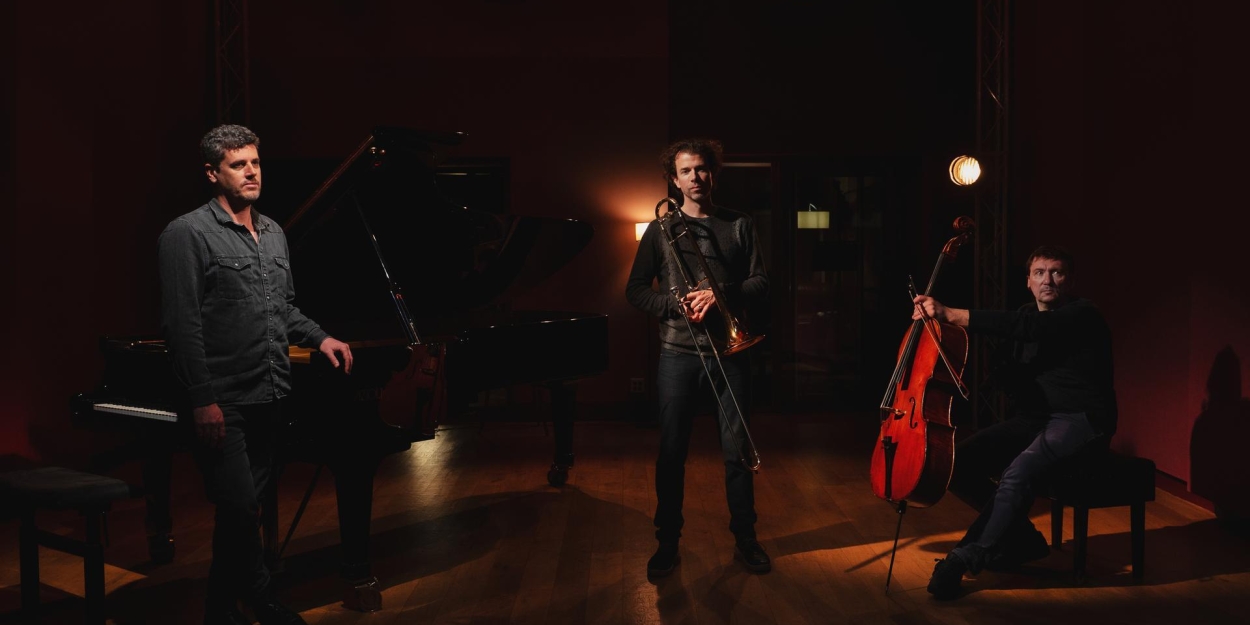Reverso (Keberle/Woeste/Courtois) Returns With 'Shooting Star/Etoile Filante' Inspired By Lili Boulanger
A musical conversation started at that time continues to this day in the music of Reverso.

Ever since American jazz became old enough to carry a passport, French composers were ready to absorb lessons and borrow licks from the exciting new avant-garde style. That enthusiasm was reciprocated by jazz musicians elated to be treated with dignity, and eager to explore the blithe melodies and beguiling harmonies that came so naturally to French composers. A musical conversation started at that time continues to this day in the music of Reverso, the trans-Atlantic collaborative of American trombonist Ryan Keberle and two French artists, pianist Frank Woeste and cellist Vincent Courtois.
From the start, Reverso has fashioned vibrant projects in response to the canons of swing-besotted composers like Maurice Ravel, Darius Milhaud, and Francis Poulenc, while also mining rich lodes of inspiration in the sublime music of Gabriel Fauré. Now, with Shooting Star–Étoile Filante, Reverso pays homage to Lili Boulanger, a composer no less significant than the group's previous subjects, but far less widely recognized.
Born Marie-Juliette Olga Boulanger in August 1893, Lili was the younger sister of one of the most formidable musical figures of the 20th century. Nadia Boulanger, a renowned composer, conductor, and pedagogue, taught multiple generations of American composers, from Aaron Copland and Elliott Carter to Philip Glass and George Walker. Remarkably, Lili showed even more originality and promise as a composer, until her career was cut tragically short by the illness that claimed her life in 1918.
“We were looking for an inspiring French composer, and Lili Boulanger is a fascinating composer in many ways,” Woeste says of the group's latest subject. “She was the first female composer who won the Prix de Rome. She was extremely talented, and recognized as such by her peers. She also had a ferocious will to keep composing and creating until her tragic death at only 24 years old.”
Compared to Fauré or Ravel, Boulanger left far fewer pieces to posterity. But Woeste, who devoted serious research to her body of work, says she actually was quite prolific, given the brevity of her life and career. Keberle concurs: “I, too, did a serious deep dive into Lili's oeuvre, and was impressed by the amount of material she composed in only the six or so years that she was active as a professional.”
Their explorations comprised Boulanger's most substantial creations, including her cantata Faust et Hélène(1913); Psaume 24 and Psaume 129 (both 1916), for one or more voices with orchestra; D'un Matin de Printemps (1918), an instrumental duet; along with solo piano works from throughout her career. “Boulanger's style is very personal, more modern than the composers we previously investigated,” Woeste notes. “Her style is nourished by both major influences of her time: On one hand, one can hear the influence of Wagner in her works for orchestra, but also French impressionism.”
Both he and Keberle sensed a darkness in Boulanger's music, surely rooted in the historical tragedy of World War I as well as the circumstance of her own existence. “I am generally drawn towards music on the more melancholy side,” Keberle says, “and Lili's music goes deep into this emotional world.”
The nature of Boulanger's writing provided a new kind of challenge for the members of Reverso. “Ravel, Poulenc, Milhaud, and Fauré all had a gift to create melodies and works one can easily sing along and remember,” Woeste explains. “Boulanger's work is more abstract, darker—but beautiful in its own way.”
Indeed, despite a sense of gravity pervasive in much of Boulanger's oeuvre, the music on Shooting Star–Étoile Filante has qualities of weightlessness and dancing that prove instantly intoxicating. And the album breaks new ground in one more important way: All three trio members provided compositions—five from Woeste, four from Keberle, and two from Courtois, who's represented on a Reverso album for the first time.
“As a trio, I feel we keep growing with this recording,” Woeste affirms, “and I am looking forward to presenting this album on tour.”
Comments
Videos

